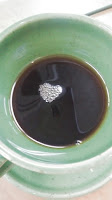Hi everyone,
As a new fiscal year (新年度) has already (既に) started and a new school year (新学年) is scheduled to begin next week, a new term (新クール) at E-Style is set to start, as well. It will be a ten-lesson term (with one week off for Golden Week) running from this coming Monday, April 7th to Saturday, June 21st. Please be sure to check out the LESSONS/FEES page of this website for a detailed explanation (詳しい説明) of our classes and prices if you are interested in studying English conversation with us this fiscal/school year.
Jack and I hope to see you at E-Style next week!
Sincerely,
Alan












